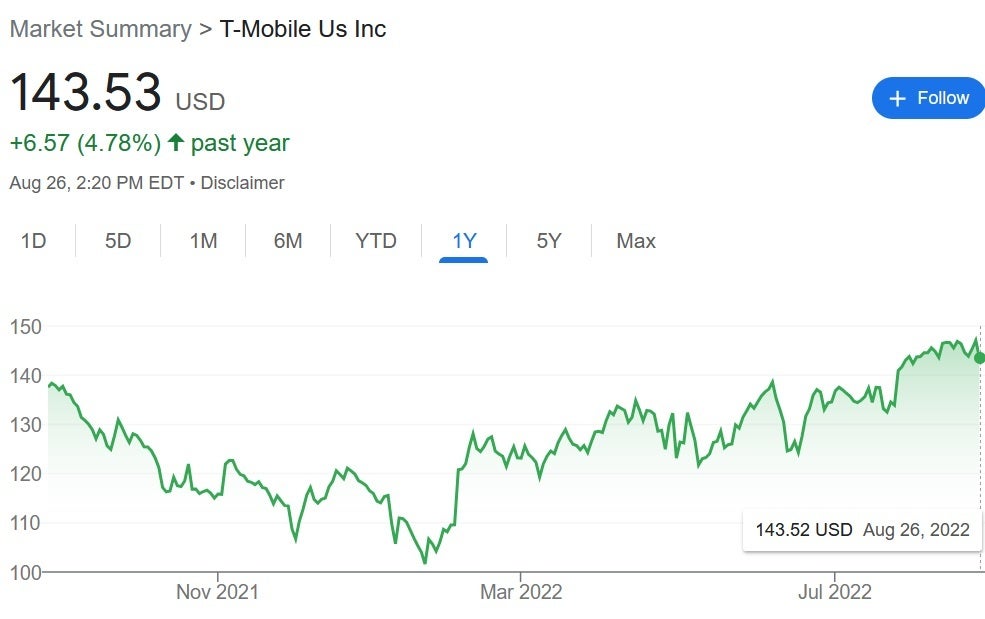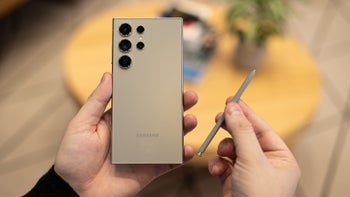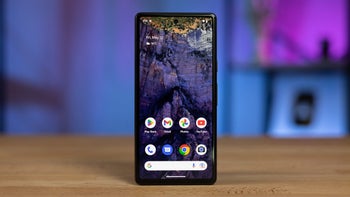T-Mobile has captured the heart of Main Street. Wall Street is next

Ever since John Legere became CEO of T-Mobile in September 2012, the wireless provider started to make its presence known in the industry. A solid fourth among the nation's four majors, Legere brought innovation, excitement, and confidence to a company that seemingly had no direction.
In August 2015, T-Mobile passed Sprint to become number three in the states. Five years later, after outmaneuvering both Verizon and AT&T by buying Sprint for its mid-band spectrum, T-Mobile was suddenly number two with a bullet, trailing only longtime leader Verizon. Even the departure of Legere in April 2020 hasn't slowed down the company which is about to pick up some more valuable 2.5GHz mid-band spectrum at a favorable price.
T-Mobile has been discovered on Wall Street where it has outperformed Verizon and AT&T
T-Mobile has also been discovered on Wall Street. Dow Jones' Barron's recently wrote, "It used to be Verizon Communication world, but wireless now belongs to T-Mobile US." Over the last year, T-Mobile's shares have risen 5.25% to $144.78. During the same period of time, Verizon's shares plunged more than 20%, and AT&T's stock has declined by more than 12%. Let's look at the last five years. During that time period, T-Mobile's shares are up 125% compared to a 9.63% drop for Verizon, and a 37% decline for AT&T.

T-Mobile's shares over the last 12 months
Analysts see T-Mobile continuing to close the subscriber gap with Verizon and it has been able to do so even though it spends less on capital expenditures than its rivals. One area where T-Mobile is still behind Verizon and AT&T is with its margins which are expected to be 4% this year compared with revenue margins in the mid-teens achieved by T-Mobile's two main competitors.
During the second quarter, T-Mobile reported 1.7 million postpaid net customer additions, more than AT&T and Verizon combined. This figure was a T-Mobile company record for a second quarter. Morgan Stanley’s Simon Flannery said, "T-Mobile delivered by far the cleanest quarter of the Big Three, with management continuing to execute on all fronts."
Postpaid accounts are generally the most profitable for wireless carriers as these subscribers pay upon the receipt of an invoice every month. The churn numbers (the percentage of subscribers that leave for another provider) are typically higher for pre-paid accounts where subscribers can easily change providers month-to-month. Postpaid is more profitable for wireless firms.
Now, T-Mobile is turning its focus to rural markets and enterprise users where it currently has market shares in the low teens and high single digits, respectively. Historically, T-Mobile and Sprint have trailed Verizon and AT&T in these markets, but T-Mobile is aiming to grab a 20% share in both by 2025. We've recently seen an increase in television ads for T-Mobile's service for businesses.
T-Mobile should eventually become the nation's top wireless carrier
T-Mobile said last month that it hopes to be finished with the integration of Sprint customers by next month, earlier than its original end of the year target. As a result, T-Mobile will be able to consider a share buyback which can stabilize a stock and even cause it to rise.
In case you were wondering, Germany's Deutsche Telekom owns 48.4% of T-Mobile's shares while 3% belong to SoftBank, the Japanese company that owned a majority of Sprint before the T-Mobile acquisition. The remaining 48.6% of T-Mobile that is publicly traded is valued at $90 billion. Analysts believe that a massive stock buyback can lead to a huge increase in earnings per share.
Wall Street expects to see a four-fold increase in T-Mobile's earnings per share from $2.41 last year to $11.54 by 2025. During that same period of time, the Wall Street consensus is that both Verizon and AT&T will see little change in their earnings.
It seems inevitable that eventually T-Mobile will overtake Verizon and become the number one wireless provider in the states. No matter how long that takes to occur, it will cap an amazing turnaround that took T-Mobile from the bottom of the U.S. wireless market to the top.










Things that are NOT allowed: